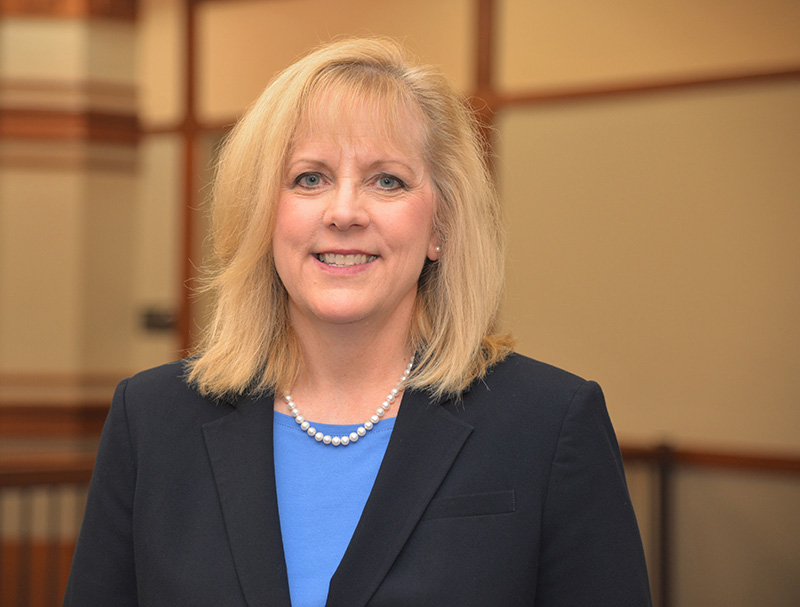 Associate Professor of Management Lori Cook uses her engineering background to influence her teaching philosophy.Associate Professor Lori Cook
Associate Professor of Management Lori Cook uses her engineering background to influence her teaching philosophy.Associate Professor Lori Cook has been living in Chicago and teaching management classes at DePaul University’s
Driehaus School of Business for almost 20 years. Yet you can still detect an accent
that indicates her Kentucky roots. That’s because Cook grew up in the Bluegrass
State and earned her bachelor’s, master’s and PhD in industrial engineering
from the University of Louisville. After college, she worked in the engineering
and operations departments of several large organizations—including Armco Steel and Kentucky
Fried Chicken—but was drawn to teaching business in Chicago. In this Q&A,
Cook talks about how her engineering background influences her mission-driven
teaching philosophy.
Tell us about your
teaching philosophy.
I believe in creating
a fun and energetic classroom environment. One of the approaches that I take is
an experiential learning approach. In all of my classes, I bring interesting
and engaging real-world case studies or activities into the classroom. It gives students something
they can relate to and helps them bring their own background and experience
into the classroom. Chicago offers so many opportunities to engage with the
business community and to have this interactive learning experience.
How do you use your engineering background in the classroom?
It is really
interesting because having an engineering background and mentality gives me a
different perspective on teaching business. My engineering background is in
industrial engineering, so it is very much in line with teaching operations and
project management. However, most of my education was about solving problems
individually. In the business school I emphasize engaging with others and
working in groups to solve problems. My past work history in quality management
and process improvement has carried over and influenced my research interests.
What areas of research
interest you most?
My research interests
have evolved through the years and covered a variety of different areas. Some
of my earlier research looked at process improvement initiatives at healthcare
companies and hospitals. Recently I have been working with colleagues to explore what organizations
report about their corporate social responsibility (CSR) initiatives through
their annual report versus what the public is saying about the company. This
winter, I will be on research leave to take an in-depth look at intellectual
property issues within the pharmaceutical industry.
What is your favorite
class to teach?
I will always love my
project management course because it combines experiential learning with the
Vincentian mission of DePaul. What better way to learn project management than
to actually manage a project? Each student is a member of a self-selected team that is responsible for creating, planning and executing a project for a designated charity or non-profit organization. Every student in class has to come up with an
idea or some type of fundraiser, awareness or volunteer activity for a
nonprofit organization. I give my student teams full control over which legitimate
nonprofit and activity they select. During the course there are many project deliverables required to help the teams work through the various stages of the project life cycle. Sometimes large
teams with many students struggle, while smaller teams thrive because they are
nimble and work harder and quicker. These are important lessons for them to
learn.
Providing these kinds
of experiences and having that fun, energetic classroom environment creates an
incredible learning experience and I am constantly in awe of what my students
can do. For many of my students this is the first opportunity to do something
charitable. Many students have told me that after that their experience, they
have gone on to do more charitable work. Over the last five years, we have raised well
over $100,000 for nonprofits from the different student projects, on top of
raising awareness and volunteering for the organizations.
Learn more about a major in management and graduate business programs at DePaul.